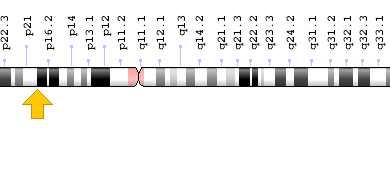How I became a believer (for a moment)
When I was about 10, my mom helped out a friend of hers by occasionally watching her kids — a girl my age, and a boy a few years younger. I got along very well with the girl, and we enjoyed taking care of her brother while bossing him around. We’d all ride bikes, climb trees, swing on ropes into a creek — don’t be fooled, it wasn’t all hokey Tom Sawyer-esque cavorting. At one point I set up a small casino, taught them both how to play craps, blackjack, and roulette (I had a wheel) and took their money.
We all grew up and grew apart once the need to be babysat was past. I had just moved away to attend college when my mom called to tell me that the boy had been killed when a drunk driver struck his school bus.
I had been working at the time at a magic shop, and was dating a fellow magician. A day or so after the news, we were walking down the street and I said to him, “You know, I think I’ve changed my mind about the afterlife — I think there very well may be something.” I told him that I was watching TV earlier and saw a guy who claimed to be able to talk to the dead, John Edward. He told families things that he shouldn’t have been able to know. “It seems so possible,” I said.
My then-boyfriend looked at me in horror. “It’s what you do,” he said. “It’s a magic trick. Cold reading. You know cold reading.”
Of course I knew cold reading. I was studying magic and psychology, and using some of the same tricks on audiences myself. Edward just wrapped it up in a different presentation. The main difference was that in this case, I desperately wanted to believe in it. Researching Edward later, I remembered having heard of magician James Randi’s educational foundation and their million dollar paranormal challenge.
People often ask how I first got involved in skepticism. My stock answer is that I was a magician and a fan of James Randi, through whom I discovered the JREF. But I guess the elongated answer is that I became a skeptic the moment I believed in a fraud. It was hardly more than just the one moment, but it was enough to clearly illustrate the overwhelming power of belief and self-delusion.
Back on Monday with 80% less death, I promise.





An excellent, excellent article. I will be linking to it from my blog. An auspicious beginning. Keep it up.
Sorry for the double post, but one thing I don't see on the blog is a link back to the Skepchick.org main page.
Cool re-design to the blog – a bit edgy, but I like it ;-)
Ok, now for the relevant-to-this post comment….
For me, I don’t know that there was a single definining moment when I became a skeptic, more an accumulation of events and a growing awareness of the virtue and necessity of reason, both of which developed with age. As silly as it may sound, I think that becoming aware of some of the benevolent deceits of childhood such as Santa Claus and the Tooth Fairy started me down the path towards skepticism and critical thinking. Also, the initial questioning, then eventual discarding of the need for religion, not because of any disillusioning event, but simply because I realized that reason and faith were not compatible, and that I could exist without faith, but not without reason.
Thanks for sharing such a person recollection Rebecca. Hope you keep up the good work that you have started :-)
I've been a skeptic since I can remember but I became more of an activist skeptic when I started teaching infectious disease prevention to workers in various occupations. People actually get mad when you tell them their Listerine is a fraudulent product. You can teach people but you can't always make them learn. I started taking the medical woo into account and now address it at the beginning of every class.
Evidence based medicine, evidence based decisions, science is a process not a set of facts, if you don't use science you waste billions on worthless remedies, miss the chance to protect yourself, and do more harm than good.
The poor dears have to hear it once or twice a year. :D
I have made an impact. Many now understand the concept. Now if I could only get them to remember the rest of the stuff.
Excellent entry. (Long story about becomming a skeptic available on request.)
Glad you guys liked this entry. If you’d like, e-mail me your “How I Became a Skeptic” stories ([email protected]) and I’ll pick some to publish in the next issue of Skepchick if I have space.
FYI, I’ve taken this entry, rewritten and expanded it a bit, and given it over to Hal at JREF for the possibility of it appearing in a future Swift Commentary (they’re running guest contributions while Randi is out of commission). I’m hoping he’ll want to run it, at least after they work through the bigger names.
I'm looking at the picture accompanying the Swift article (http://randi.org/jr/2006-03/032406watson.html#i3), and I can't help but think that Rebecca's eyes are conveying such innocence, while the mouth displays a diabolic, conniving look.
Another book to plug:
America’s Secret Jihad: The Hidden History of Religious Terrorism in the United States. By Stuart Wexler.
There’s a specific thread of evangelical crackpottery that Wexler traces from Synagogue bombings in 1957-8, through the Birmingham ‘Four Little Girls’ church bombing, the ‘Mississippi Burning’ murders, and forward to Timothy McVeigh.
The ‘National States Rights Party;’ The ‘Church of Christ Christian;’ The ‘Cross the Sword and the Arm of the Lord,’ etc. all draw on the ‘Christian Identity’ brand of fundy lunacy. This is the ‘the real Old Testament “chosen” are actually…White Anglo-Saxons’ (or Germans, or hell maybe even Lapps, so song as the author happens to be a Lapp).
There are a bunch of unexpected twists in the thinking of these types. In particular, their immediate hatred of Black people is used to leverage an exterminationist anti-Semitism. The thinking is tortuous, and involves fantasies about second creations, Satanic breeding with Eve…really crazy shit.
Wexler can follow this through the influence of several individual leaders. But the trail gets weak as we come to the present, when many specific ‘Identity’ notions are blended in with generic American far-right evangelicalism. One point stands out: the ‘Identity’ leaders actually manipulated and deceived even entrenched Klan groups into violent acts that were meant to generate apocalyptic backlash, rather than intimidating and disenfranchising potential black voters.
Happy to get the band back together! (I call tambourine!)
Damn it, I’m third, so I’m going to go with a, Whoo, hoo (just to be unique).
I think it’s actually called the “autonomic nervous system” — see https://en.wikipedia.org/wiki/Autonomic_nervous_system
Good luck with the promotion and stay safe.
Good luck with the promtion and I hope Iowa makes it through this disaster.
More to the point, a racist con man. His success has mainly been due to chutzpah and an ability to entangle other people in his lies to the point that they can’t admit that he’s cheated them without sinking themselves, too. LIke any good con man, he tells people what they want to hear, which in this case was that there was no reason to do things differently, because COVID was a lie.